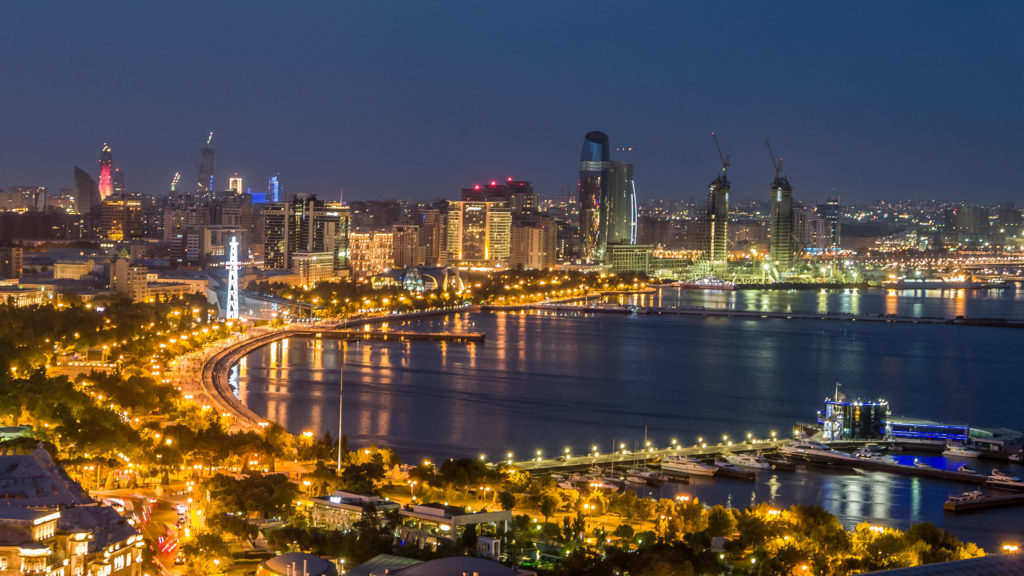BAKU
Azerbaijan’s non-oil exports of goods rose by 40.9 percent year-on-year to $1.8 billion in January-September, the country’s Economic Reforms and Communications Analyses Centre said.
According to the Centre, ferrous metals exports rose 2.3 times, chemical industry products – 2.1 times, sugar – 2.1 times, cotton – by 80.8 percent year-on-year and aluminium – by 55.8 percent.
In September alone, non-oil exports rose by 75.2 percent year-on-year to $224.7 million, while the country’s total exports amounted to $1.7 billion.
In 2020, Azerbaijan’s non-oil exports declined 5.2 percent year-on-year to $1.9 billion due to the COVID-19 pandemic.
The Economy Ministry forecasts the non-oil sector to rise to over $2.2 billion.
OIL EXPORTS DECLINE
In September, the State Customs Committee said that Azerbaijan’s oil exports declined while gas exports surged in the first eight months of the year after the country started exporting commercial natural gas to Europe from its Shah Deniz II field in December.
The country reduced oil exports by 9.5 percent year-on-year to 18.771 million tonnes and increased exports of natural gas by 56.4 percent to 13.242 billion cubic metres (bcm) in the period from January to August.
The export of natural gas from Azerbaijan in nominal terms amounted to $2.350 billion. According to the Committee, Turkey received 7.310 bcm of gas worth $1.090 billion, Italy – 3.047 bcm for $836 million, Georgia – 2.158 bcm for $269 million. Some volumes have been exported to Greece, Bulgaria and Iran.
The BP-led consortium which is developing the Shah Deniz project has been pumping gas from the offshore field’s first phase since 2006, delivering more than 10 bcm a year of gas to Azerbaijan, Georgia and Turkey. The second phase started output in 2018, adding 16 bcm of gas production capacity at its peak to bring total capacity to 26 bcm.
The country started commercial natural gas supplies to Europe from Shah Deniz II via its $40-billion Southern Gas Corridor in December 2020, when the corridor’s last part, the Trans-Adriatic Pipeline, was completed. The project is aimed at reducing Europe’s dependence on supplies from Russia, which currently controls 34 percent of the continent’s gas market.
Azerbaijan aims to supply European gas markets with 10 bcm of gas a year, including 8 bcm to Italy and a combined 2 bcm to Greece and Bulgaria. SOCAR, the state oil and gas company, said gas supplies to Europe were projected at over 5 bcm in 2021. In 2020, Azerbaijan exported 13.396 bcm of gas.
The total value of oil exported during the first eight months of this year amounted to $8.499 billion, 25.1 percent more than in the same period last year. The share of oil in the total export structure in January-August amounted to 65.7 percent.
The country uses the Baku-Tbilisi-Ceyhan (BTC) pipeline via Georgia and Turkey to export oil from the Azeri-Chirag-Guneshli oilfields operated by BP. It also exports oil with the Baku-Novorossiisk pipeline via Russia, the Baku-Supsa pipeline via Georgia and by rail in Georgia.
From January through July 2021, 115.438 million barrels of oil were pumped via the BTC pipeline, which is 11.512 million barrels, or 9.07 percent, less than in the same period in 2020.
In 2020, Azerbaijan exported 17.878 million tonnes of oil and 2.409 million tonnes of refined products.

